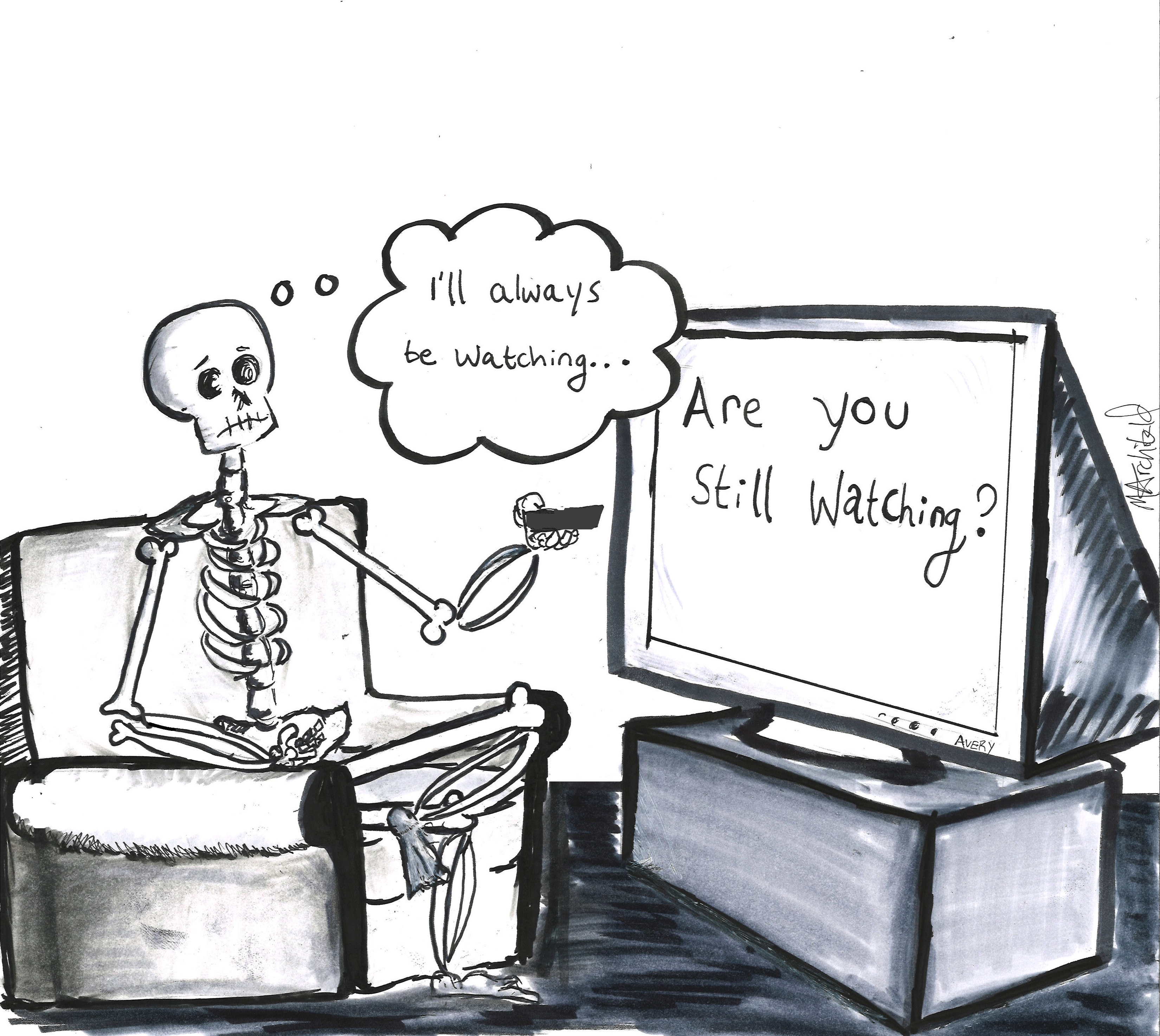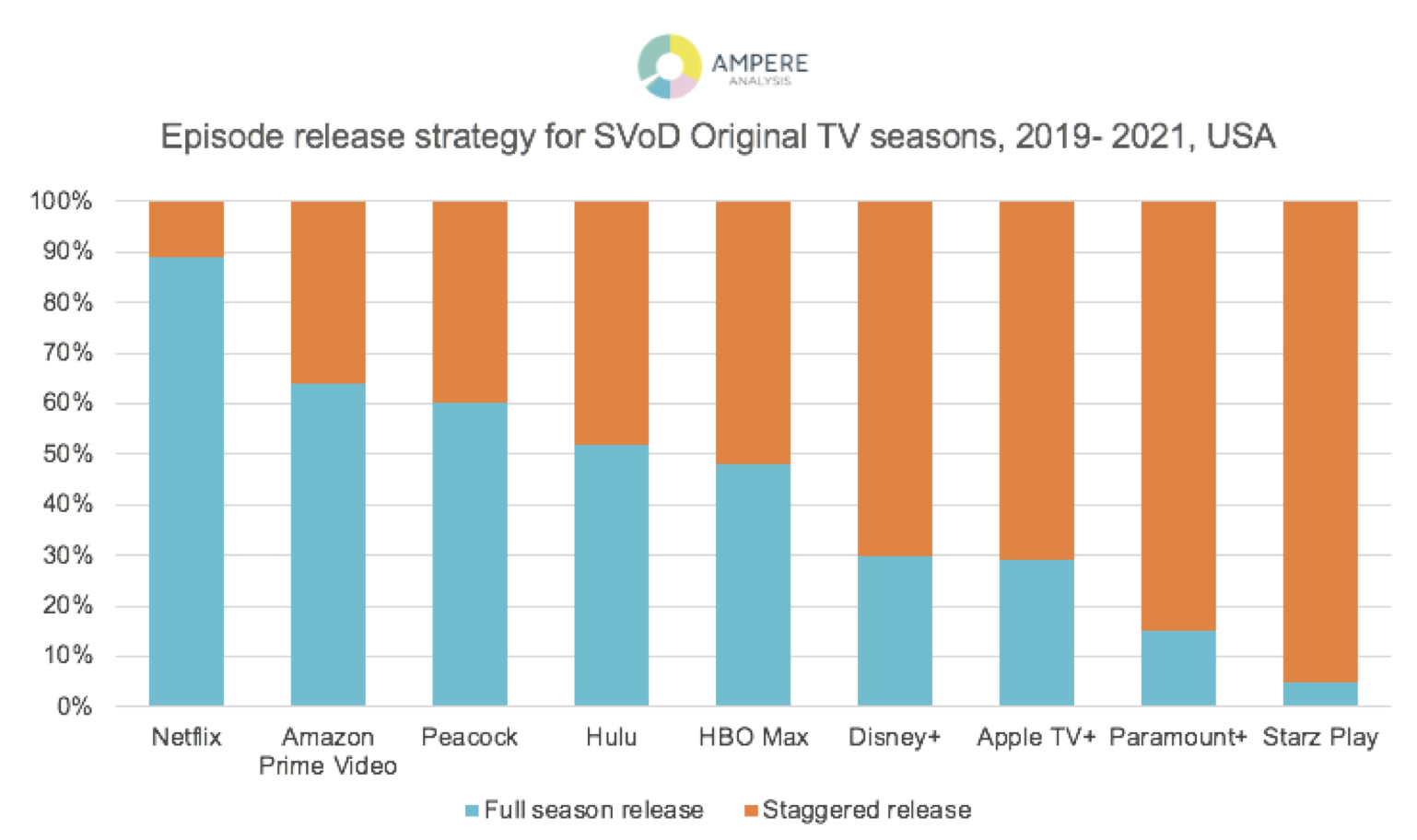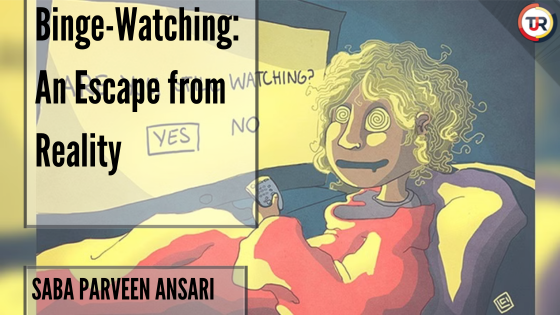Binge-watching gives an immersive escape from life’s emotional realities. The addictive pleasure, driven by dopamine release, accompanies the audience’s deep investment in the lives of fictional characters. While binge-watching offers a temporary diversion and stress relief, it may contribute to elevated levels of stress, anxiety, and depression. The seamless flow and uninterrupted viewing experience characteristic of binge-watching can lead to isolation if not balanced with genuine human connections, emphasising the complex interplay between entertainment, emotions, and mental well-being.
You sit in your room after a long, hectic day at work with your laptop and have your dinner by deciding which new show to watch. And you didn’t even notice when the clock struck 2, and you’ve already binge-watched half of a season and are tempted to watch just one more, even though you know you’ll have to pay for it the following morning.
Even the best of us experience it. We have access to hundreds of show alternatives that we can watch all at once for a monthly subscription that works out to be less than a week’s worth of snacks, thanks to streaming services like Netflix and Amazon Prime.

The term “binge-watching” refers to a new behavioral pattern in which viewers watch two to six TV episodes in a single session. The rise in popularity of various on-demand streaming platforms, including Netflix, Disney+Hotstar, Amazon Prime, and Apple TV, can be attributed to this behavior. Netflix introduced new television consumption methods in 2013, allowing users to select from a wide variety of content and watch as many episodes of TV shows as they’d like. Moreover, a TV show’s entire season is accessible at once, unlike regular television, which broadcasts every episode at a particular time every day, leading the viewers to wait for each episode daily.
Between 2011 and 2015, binge-watching gained popularity and eventually became the norm for mainstream audiences to watch TV shows. According to Netflix’s most recent figures from the third quarter of 2019, the streaming service has over 167 million paying customers. From 5 million in 2012 to over 167 million in 2020, this number grew quickly. The fact that Netflix is accessible in 190 countries is noteworthy. In fact, on the first day of the show’s release, 361,000 viewers watched all nine episodes of season 2 of “Stranger Things,” according to research data.
Watching a show from start to finish feels so good, and there is a scientific reason behind that. It’s because our brain releases certain chemicals. The body naturally experiences pleasure when it engages in that activity, which is reinforced by this chemical. The signal that tells the body, “This feels good,” comes from the brain. Your body feels like it’s high on drugs when you binge-watch your favourite show, as your brain is constantly releasing dopamine. Because of your dopamine cravings, you become addicted to the show.
The brain processes that cause heroin and sex addictions are the same as an addiction to binge-watching. Your body doesn’t distinguish between reasons for pleasure. Any activity or substance that consistently releases dopamine has the potential to cause addiction. Our binge-watching experience is also fueled by devoting a significant amount of time to the lives of the characters we watch on television.

Binge-watching for a temporary high
Binge-watching provides us with a brief diversion from our daily routine and can be an effective way to manage stress. Tuning out the stress and pressure and closing our minds is difficult. A binge can function as a steel door, keeping our minds from returning to the persistent stressors that push their way into our consciousness. One excellent boundary that can be set up to forget our problem for a while and be on that temporary high is binge-watching.
It is crucial for binge-watchers to finish the show before anyone reveals plot twists and insights. Binge-watching can be determined by skipping credits and recaps, quickly selecting the “next episode” button, and eliminating breaks between episodes. Using these features allows viewers to shave off a few minutes, but they also improve the immersion and “flow” that come with binge-watching a TV show. These features were developed by the different streaming platforms. An uninterrupted, prolonged, and profound immersion contributes to a “more complete escape from everyday life than a person obtains from watching only one episode.”
A study found that 142 out of 408 participants said they binge-watched. Compared to people who did not binge-watch, this group reported higher levels of stress, anxiety, and depression. However, when we look at the habits associated with binge-watching, it becomes clear why it might begin to affect our mental health. First of all, binge-watching can easily turn into an isolating activity if you’re not doing it with another person.
We are wired to connect, and when we disconnect from humans and over-connect to screens at the cost of human connection, eventually we will ‘starve to death’ emotionally. Although real relationships and life’s work are more challenging, they are ultimately more fulfilling, growth-promoting, and connecting.
Setting a healthy boundary
Setting boundaries for how much time you spend watching a show can help you avoid the negative effects of binge-watching, but this can be difficult when you’re faced with cliffhanger scenes that could be resolved if you stay up for one more episode. In addition to pleasure, we often binge-watch to obtain psychological closure from the previous episode. But since every new episode raises more questions, you can binge-watch in a healthy way if you give yourself a set time limit to finish.
Saba Parveen Ansari is a student pursuing English Hons. from Jamia Millia Islamia.
Edited by: Moneera Aiman






GIPHY App Key not set. Please check settings